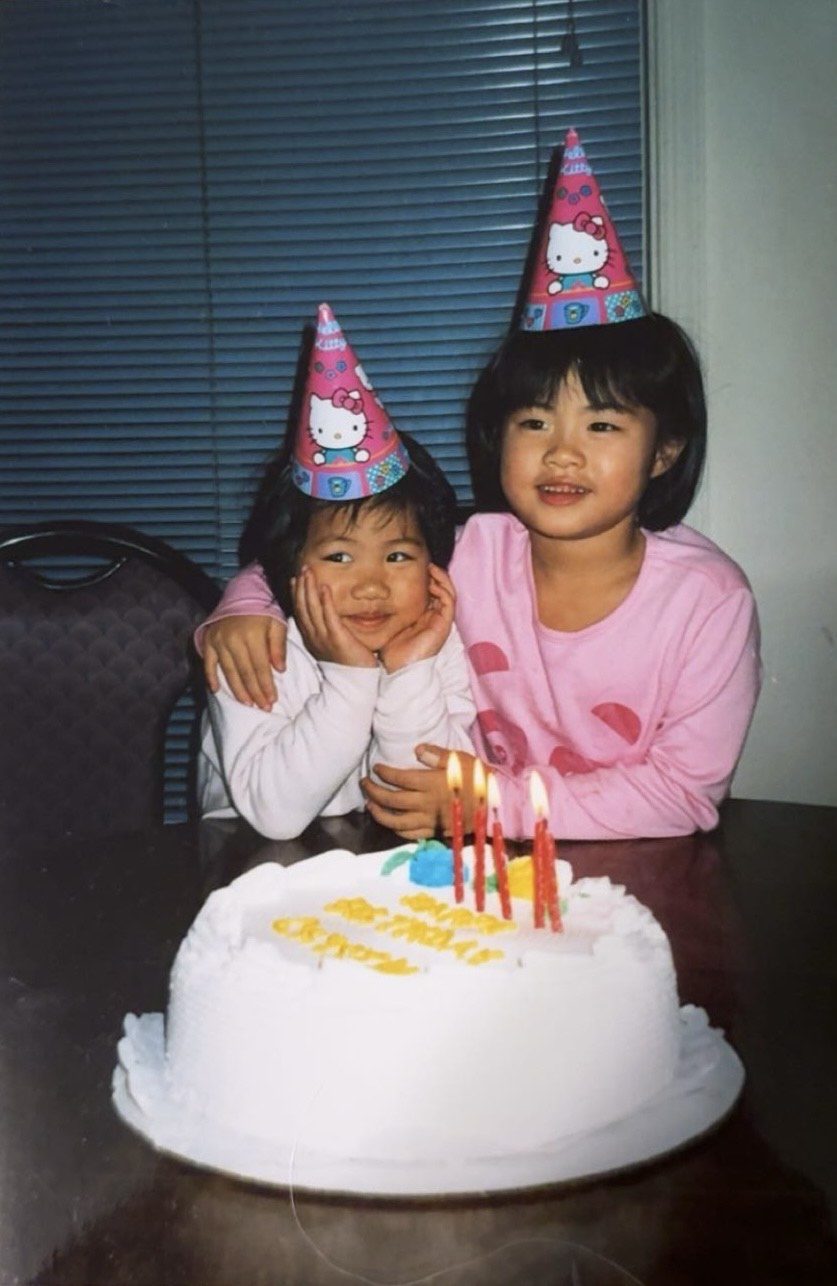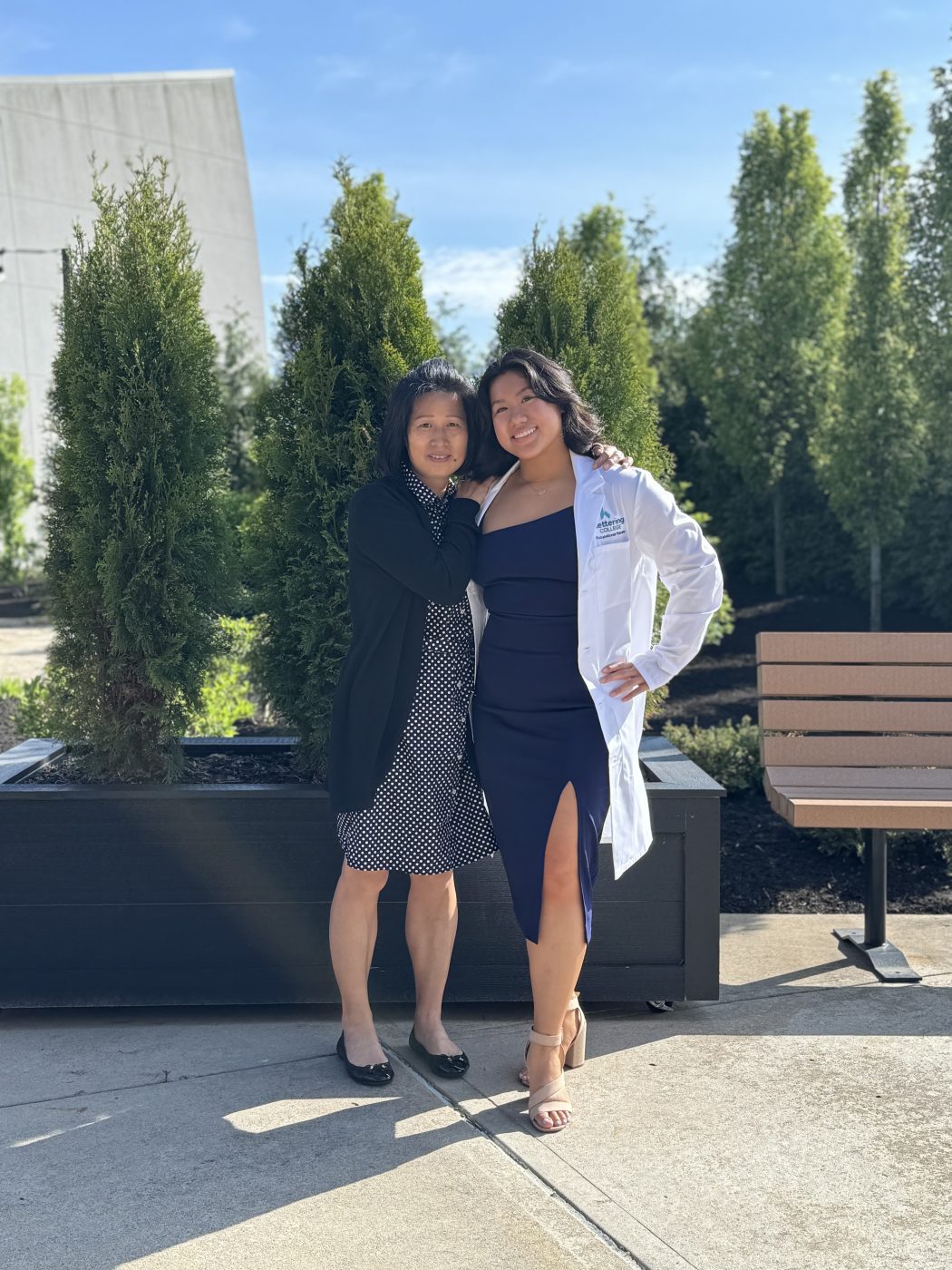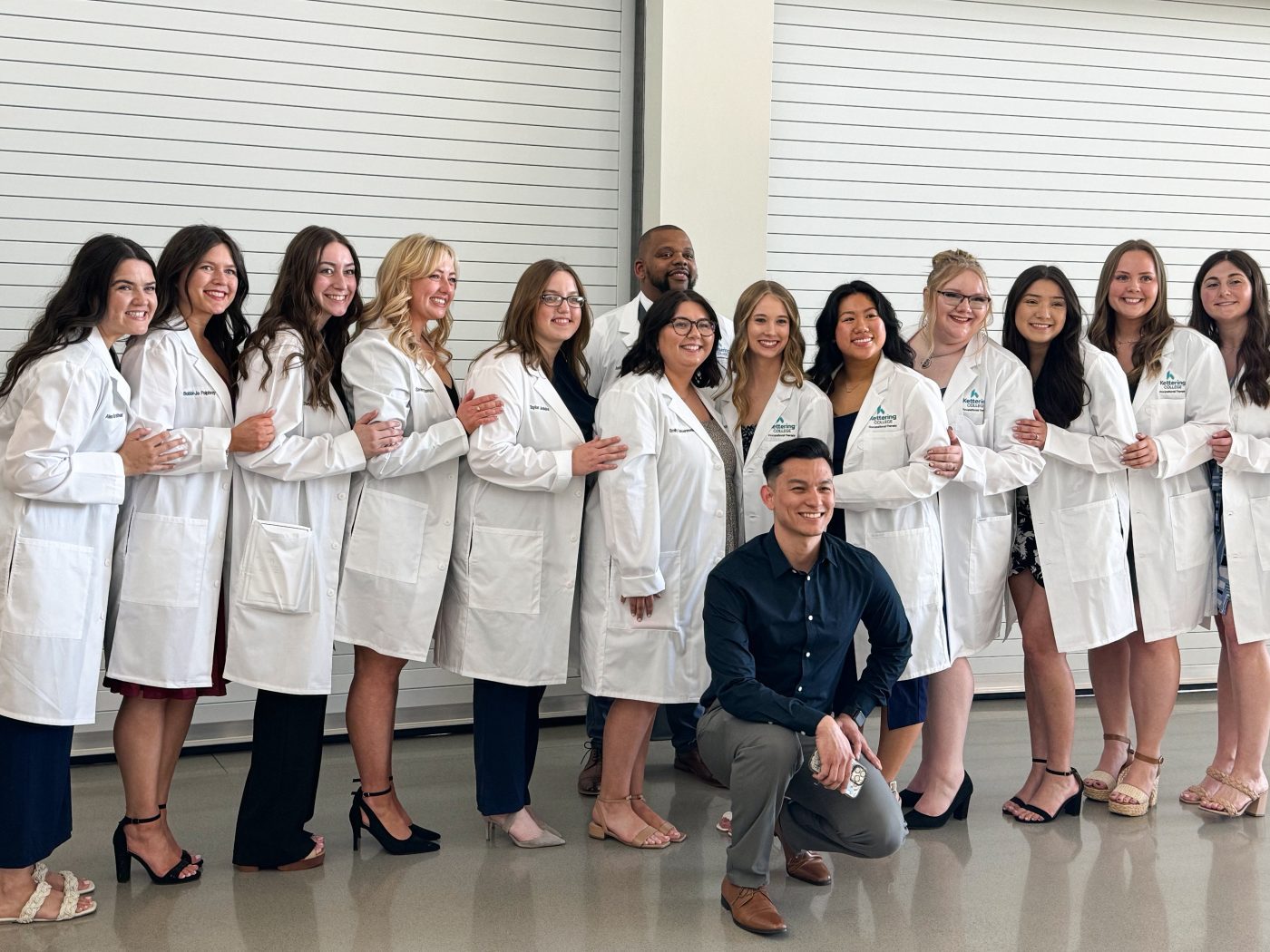Celebrating Occupational Therapy Student Ivy Wong

Asian American Pacific Islander (AAPI) Heritage Month is observed to honor and celebrate people of that descent and the contributions they have made and continue to make to the United States. To celebrate AAPI Month at Kettering College, we will tell the stories of our students who identify as AAPI to deepen our understanding and appreciation.

Ivy Wong is a third-year student in Kettering College’s Occupational Therapy doctoral program who is looking forward to a career as an occupational therapist in the near future.
She is a first-generation Asian American. She says, “My mother grew up in a village in China and my father resided in Hong Kong. Both my parents were in their 20s when they immigrated to the United States.”
Her parents met in New York City and once Ivy was born, they moved the family to Staten Island, where Ivy spent the majority of her childhood and adolescent years. When she was 18 years old her father’s job transferred him to Columbus, Ohio, so she attended and graduated from The Ohio State University.
Ivy says, “As for my childhood, growing up as an Asian American had its challenges due to the constant battle of wanting to be “more American” and my parents, especially my mother, wanting me to embody the Chinese culture. My mother taught me Chinese as a child; however, I quickly dismantled learning the language because none of the kids in my class spoke it. Typically, I was the only Asian in the class and it was hard to connect to the other kids with my Asian descent due to practical jokes that other kids would play.” Ivy admits she desired more to blend in with her peers than to embrace her Chinese heritage.

As an adult looking back, she says, “I do have some regrets of not holding onto my culture when I was younger and allowing the opinions of others to influence my own personal view of the culture. My mother still speaks Chinese to me, and I try my best to answer back in the correct language. However, I still have some difficulty and revert to English, which isn’t her strongest language, nor is it her preferred.”
Ivy is forthcoming about the challenges she’s faced as an Asian American. She says, “It’s a stereotype that all Asians are incredibly smart and driven. In my experience, this stereotype persists, even as a part of my ‘culture,’ so it has been difficult to live up to this standard. It has been challenging to always be perfect and have the highest GPA. I’ve learned over time that it’s okay not to be perfect, but sometimes the standard is still hanging over my head.”
She recalls another challenging time being during the COVID-19 pandemic. She says, “Many individuals were placing blame on Asians for the virus. Although I didn’t live in New York City at the time, many Asians, especially females, were at risk of being pushed onto the subway tracks. I feared for my friends and family in New York and hoped they would never experience that type of hate crime.”

Ivy says she loves her culture and doesn’t mind talking about it, but she has experienced unconscious bias from others who say, “No, where are you really from?” when she tells them she was born and raised in New York. She says, “When I receive this type of response, I always question why their first thought was that I was not born in America. How the question is phrased and the assumption that I did not grow up in the States is where the problem lies.”
She says she believes AAPI Month is important because it “provides the opportunity for individuals to educate/share their culture and heritage amongst others.” She adds, “In addition, I believe this month can empower those of Asian/Pacific Islander descent and help them feel appreciated for their culture.”
The aspect of her Chinese heritage that she is most proud of is their loyalty to friends and family. Ivy says, “No matter where we are or if there are family conflicts, when someone needs help, we will always be there for each other. Additionally, we will always support one another and take care of our elders. I think this is what geared me towards becoming an occupational therapist because I want to be able to help people live their lives to the fullest.”

Print This Page